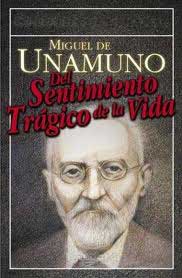
"Works Of Miguel de Unamuno"
Unamuno's third son was physically and mentally disabled by meningitis.
Thanks for your email.
Keeping in mind that I will not visit Spain until May-June of next year, I have nevertheless studied her people and culture since the 1960s.
By all accounts, Madrid is an enjoyable city but rather "formal."
For me, the only "draw" in Madrid is the Prado Art Gallery which seems well worth a visit despite your general disinterest in "museums." http://en.wikipedia.org/wiki/Museo_del_Prado
Using Madrid as a base, I would encourage you to take day trips to Avila, Toledo, Cordoba, Granada, and although it would be a very long day trip, Sevilla (Seville).
Ronda is small and out of the way but at the top of my "short list" of Spanish towns I most want to visit.
In a very personal way, I am drawn to Salamanca, not only because it was Miguel de Unamuno's home, but because it is the university town that has contributed most disproportionately to Spain's intellectual life.
Granada in Moorish Andalucia, is an ancient place that is beautifully hybridized with the cultural legacy of Islam. http://www.andalucia.com/history/spainsmoorishhistory.htm
Speaking of Islam and Spain, I think the following post will interest you.
"1492: Caliph Bayezid II Offers A Home To All Jews and Islamics Expelled From Spain"
Although El Camino de Compostela is not well-positioned for the particular journey I recommend, I do recommend "The Way," a movie starring Martin Sheen and directed by his son Emilio Estevez - a drama of death and resurrection that takes place on "El Camino." http://www.imdb.com/title/tt1441912/?ref_=fn_al_tt_1 ("The Way" is currently streaming on Netflix.)
Concerning Unamuno...
I regard him as one of Spain's two greatest philosophers.
In addition to philosophy, Unamuno was a highly-regarded novelist.
His novella (novila) "San Manuel Bueno, Martir" would be a good Spanish (and/or English) language book to have "on board."
"San Manuel" is freely available online through links at http://en.wikipedia.org/wiki/San_Manuel_Bueno,_M%C3%A1rtir
I also recommend:
Miguel de Unamuno: "Without a Free and Harmonious Life..."
In "Free and Harmonious Life," take particular note of "Confrontation with (Christian Fascist) Millán-Astray," an event I hope to dramatize.
The other great Spanish philosopher, Jose Ortega y Gasset, is, in my view, the intellectual whose writing marked the signal event of modernity. His simple sentence "Yo soy yo y mi circunstancia" broke with the lopsidedly-interiorized devotion that derived from medieval Christendom and for the first time spotlighted "the environment" as an intrinsic part of human nature. We are not theo-philosophical "monads" but rather continuously interwoven threads in the fabric of our environment (which de Chardin subsumed in The Divine Milieu).
Ortega y Gasset's "La Rebelion de las Masas" is a book that probes modernity as a surrender of culture to populist sentiment and does so in a way that is highly critical, largely because nascent populism toppled what was best in aristocracy and noblesse oblige.
In the early '70s, Bob Dylan was swept away by "The Rebellion of The Masses."
In the following stuffy article by Stephen Harper -- published on Joni Mitchell's website -- "hippy-ism" is taken to task as an outcome of "The Rebellion of The Masses." http://jonimitchell.com/library/view.cfm?id=2241
In the following stuffy article by Stephen Harper -- published on Joni Mitchell's website -- "hippy-ism" is taken to task as an outcome of "The Rebellion of The Masses." http://jonimitchell.com/library/view.cfm?id=2241
Here is Ortega y Gasset's Wikipedia page: http://en.wikipedia.org/wiki/Jos%C3%A9_Ortega_y_Gasset
Paz contigo
Alan
PS Google's "expandable" map of Spain: https://www.google.com/maps/place/Spain/@39.9687014,-3.7272473,7z/data=!4m2!3m1!1s0xc42e3783261bc8b:0xa6ec2c940768a3ec
No comments:
Post a Comment